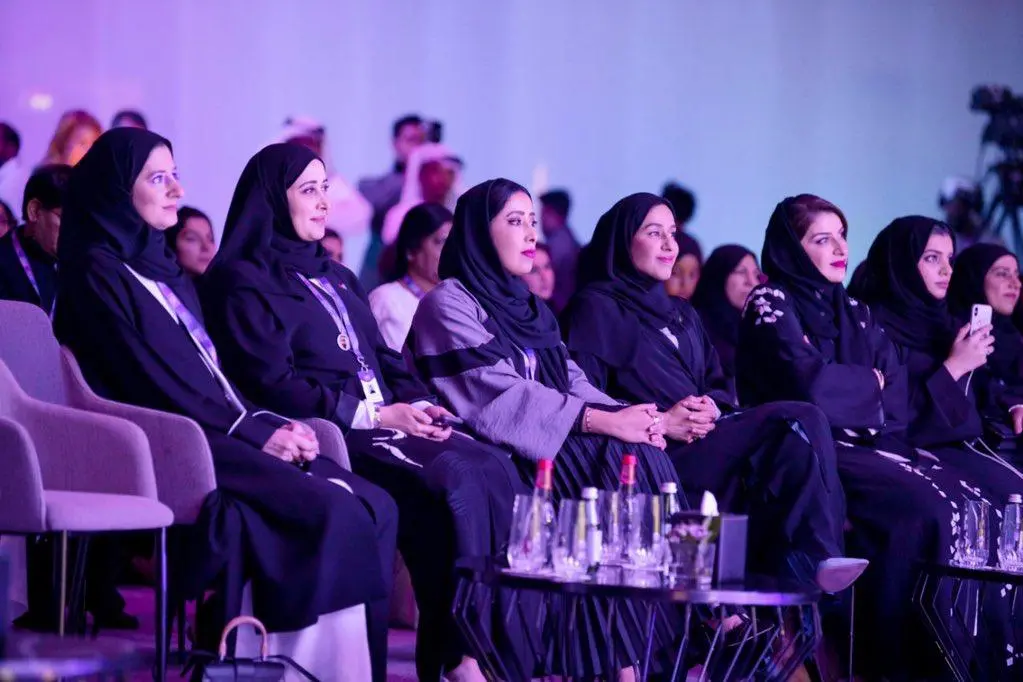PHOTO
Increased female participation is likely to turbocharge economic growth in the GCC as job opportunities in the Middle East are set to double with the Fourth Industrial Revolution, according to a report released on International Women's Day.
The share of women in professional and technical jobs is set to more than double by 2030 through digitisation, online platforms, and entrepreneurship, the report by global consulting firm McKinsey & Company said. "Capturing this opportunity would put women in the Middle East at parity with global peers," it said.
The notion that providing equal access to education, work, financing, and legal protection have positive economic and social implications is not a new one. The stakes, however, are growing as the region's policymakers have realised that the participation of women in Arab economies amid the Fourth Industrial Revolution is vital for boosting the growth of economies and societies.
The research report on gender parity titled "Women at Work" is based on a year-long survey that covers selected countries from the GCC and the Levant - home to around 78 million women.
Despite high rates of enrollment and education literacy levels, labour force participation rates (LFPR) for women in the Middle East are the lowest in the world at 24.6 percent - half of the global average, the report said.
However, countries with high levels of inequality in professional and technical jobs have experienced reverse gender gaps in education over the last decade where female university graduates now outnumber men in some countries, it added.
McKinsey has identified four indicators that have a relatively higher correlation with women's participation in professional and technical jobs – education, financial inclusion, digital inclusion, and legal protection. The report looks at how these indicators affect women in the Middle East and their ability to participate in the labour force actively.
Levels of literacy and enrollment of women in primary and tertiary education are on par with men and girls tend to outperform boys in school. However, women prefer tertiary fields of study such as arts and education and are not sufficiently integrated with STEM-related fields, it said.
The consulting firm sees digital inclusion as a critical catalyst for boosting female participation in professional and technical jobs within the Middle East as technology begins to reshape the workplace, offering more job opportunities and greater flexibility for women who work.
The report identifies a few challenges for the region and offers solutions. "High inequalities persist, most notably in legal protection and financial inclusion with a significant number of women remaining unbanked. Introducing new legal frameworks is one important enabler for ending the gender-based inequalities prevalent in the Middle East region," it said, adding that women in the workplace face higher level of challenges than men as they have few interactions with seniors, sub-par support from colleagues, and limited experiences with committed role models.
McKinsey seeks three types of interventions to bridge the gender gap. "Stakeholders, including policymakers and business leaders, have a responsibility to drive female participation in professional and technical jobs through tailored education and training to upskill and retrain women; an enabling structural foundation with a support system and enhanced regulatory and policy framework; and an environment conducive to women's growth," said the report.
In addition to these interventions, the importance of self-empowerment and grit cannot be ignored and will need to be driven by women in the Middle East, it said.
(Writing by Atique Naqvi, editing by Seban Scaria)
#JOBS #ECONOMY #GCC
Disclaimer: This article is provided for informational purposes only. The content does not provide tax, legal or investment advice or opinion regarding the suitability, value or profitability of any particular security, portfolio or investment strategy. Read our full disclaimer policy here.
© ZAWYA 2020





















